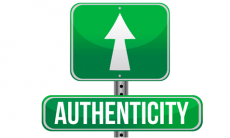Yesterday, as part of National Education Week, I audited several classes at my daughter’s high school. One of them, Non-Western Philosophy (yeah, high school has changed in the last 30 years), was starting a two-week study of Buddhism, starting with the life of the Buddha himself. It was the last place I’d have expected to be reminded of Internet marketing, but I was (maybe because I have a one-track mind).
Now understand, I’m a Christian. What I know about Buddhism fits snugly in a thimble. I’m not proud of it—it’s just true. So sitting in on a half-hour discussion of the Buddha’s life yesterday probably multiplied my knowledge of Buddhism tenfold, which wasn’t hard to do—until yesterday I didn’t know I was supposed to put “the” in front of “Buddha.”
But I was struck by the parallels in Buddhist thinking to what marketers must do to adapt to the Interent.
Buddhists, rather than manipulating the world to their ends, instead pursue an unrelenting path to enligtenment—whereby they understand the most important things. To succeed on the Internet, marketers must stop merely trying to get attention—they also must pay attention. Understanding who their customers are and what they need is achieved through listening to what customers say and watching what they do. Sure, marketers will always need to be persuasive (cynics would say manipulative), but the more they pursue enlightenment about their customers and their needs, the more in tune with them they will be.
The Buddha also encouraged his followers to put his teachings to the test, rather than trying to interpret what he said or what others say or write. This is also important to the modern marketer. Instead of tying ourselves in knots about best practices dreamed up by consultants and other soothsayers, we must test everything we do. Even if a smart consultant has seen a technique work ten times in a row does not mean it will work for your business. Only by constant experimentation and testing will you find what the best practices are for you.
In case you find all of this to be sacrilegious, understand that I am aware that the Buddha, were he alive today, is unlikley to have pursued a career in marketing. Much of the Buddha’s message was one that bordered on ascetism, and marketers (even on our best days) are motivated by money changing hands. But I wonder (armed with my 30-minute graduate degree in Buddhism) whether the Buddhist attitude toward money is healthy for marketers, also.
The Buddha seemed to be focused more on avoiding attachment to worldly things, such as money, rather than steering clear of money itself. If true, that also holds lessons for Internet marketers. Instead of focusing on quick-win sales, we need to do the right thing by our customers and expect that things will work out. It’s attachment to those outcomes that causes us to short-circuit the true path to marketing enlightenment.
And make no mistake about it. Adopting the approach of listening and watching customers instead of hawking products is as big a change as any religious conversion. Long-held beliefs are tested when we cut short the planning process and just get out there to interact with flesh-and-blood customers, measuring whether what we did was right or wrong.
It’s not comfortable, but not even the Buddha promised that life would be comfortable.




